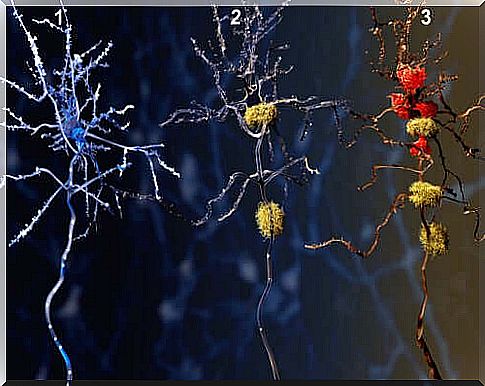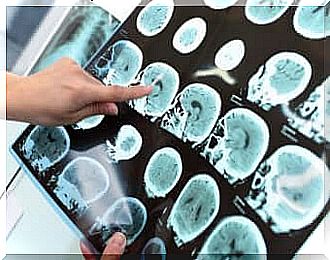Donepezil: Effect And Contraindications
Donepezil is a relatively well tolerated drug used to treat mild to moderate symptoms of Alzheimer’s disease. Most of the side effects are predictable and temporary. However, in some cases, moderate or serious effects can occur.

Donepezil is used for the symptomatic treatment of mild to moderate forms of Alzheimer’s disease. However, this drug has not yet shown any improvement in behavior, functional skills or quality of life of the patients. The progression of this serious dementia cannot be slowed down.
However, this drug has advantages over other active ingredients (such as tacrine). Because donepezil is easier to dose and has a better safety profile, as no cases of liver poisoning have been described to date.
However, the unclear benefits of this drug in the treatment of Alzheimer’s disease and its dubious long-term effects make it necessary to conduct further clinical trials, which must be carried out over longer periods of time.
Alzheimer’s dementia

Alzheimer’s disease is the most common dementia, but there are others too. In particular, people of advanced age suffer from it. However, dementia does not refer to a specific illness, but to a wide variety of symptoms that impair memory, the ability to think and social capacities and thus have a very negative effect on the everyday life of the patient.
Even though Alzheimer’s is the most common dementia, its exact causes have still not been adequately researched. The exact triggers are still unknown, but beta-amyloid plaques and tau fibrils can be identified:
- So-called beta-amyloid proteins are formed, which accumulate as toxic oligomers. These clump together and form deposits between the nerve cells that can no longer be broken down by the body.
- The tau protein forms part of the microtubules (tubes) inside the cell that help transport nutrients. In Alzheimer’s disease, the tau protein is chemically altered and deposited in the form of fibers called tau fibrils. As a result, the cells lose their shape and function and disintegrate.
Genetic factors are also known to play a role in this disease. In addition, other factors such as age, Down syndrome, and severe cognitive decline must also be considered.
As for the symptoms, some of the following can be mentioned:
- Memory loss
- Communication problems, limited ability to think, planning and coordination disorders
- Confusion and disorientation
- depression
- Anxiety and nervousness
- paranoia
How does donepezil affect the body?

As explained earlier, dementia is triggered by the loss of certain types of nerve cells. Several medicines, which include donepezil, are known as cholinesterase inhibitors. By inhibiting the enzyme, they prevent acetylcholine from being broken down into acetic acid and choline.
Acetylcholine is released in the synaptic space that exists between two nerve cells to allow neurotransmission. However, if there is not enough acetylcholine in the brain, the transmission of stimuli cannot function properly and the patient suffers from the typical symptoms of dementia.
Donezepil lengthens and temporarily increases the effects of acetylcholine. But this is currently not possible to cure dementia. So far, science has only managed to delay cognitive decline. A definitive cure for Alzheimer’s is not yet possible.
Side effects of donepezil
This drug is relatively well tolerated. Most of the side effects are predictable and temporary. However, in some cases, moderate or serious side effects can occur.
In the event of undesirable consequences in connection with the cholinergic effect of the drug, it is usually discontinued in the first twelve weeks. The most common side effects include:
- Nausea and nausea
- diarrhea
- a headache
- Insomnia and parasomnia
Advice and precautions when using donepezil

Some patients need to be especially careful when using this medicine. This includes, for example, people with a known hypersensitivity to drugs, which is caused by piperidine or auxiliary substances in the formulation.
Pregnant or breastfeeding women cannot take this drug as its possible effects have not yet been researched. On the other hand, patients with the following diseases or treatments should take extra care when taking donepezil:
- Muscle relaxation through succinylcholine
- Cardiac arrhythmias
- Gastrointestinal complaints
- Urinary disorders and obstruction of the urinary tract
- Closed angle glaucoma
- Asthma or EPOC
Conclusion
Donepezil should be viewed as an advance in the field of neurology. Because this improves the treatment of Alzheimer’s dementia. However, much more research is needed to find a definitive cure for this disease.
Patients being treated with this medicine should be monitored by a healthy companion to ensure that they are actually taking the correct dose and that they are adhering to medical instructions.









